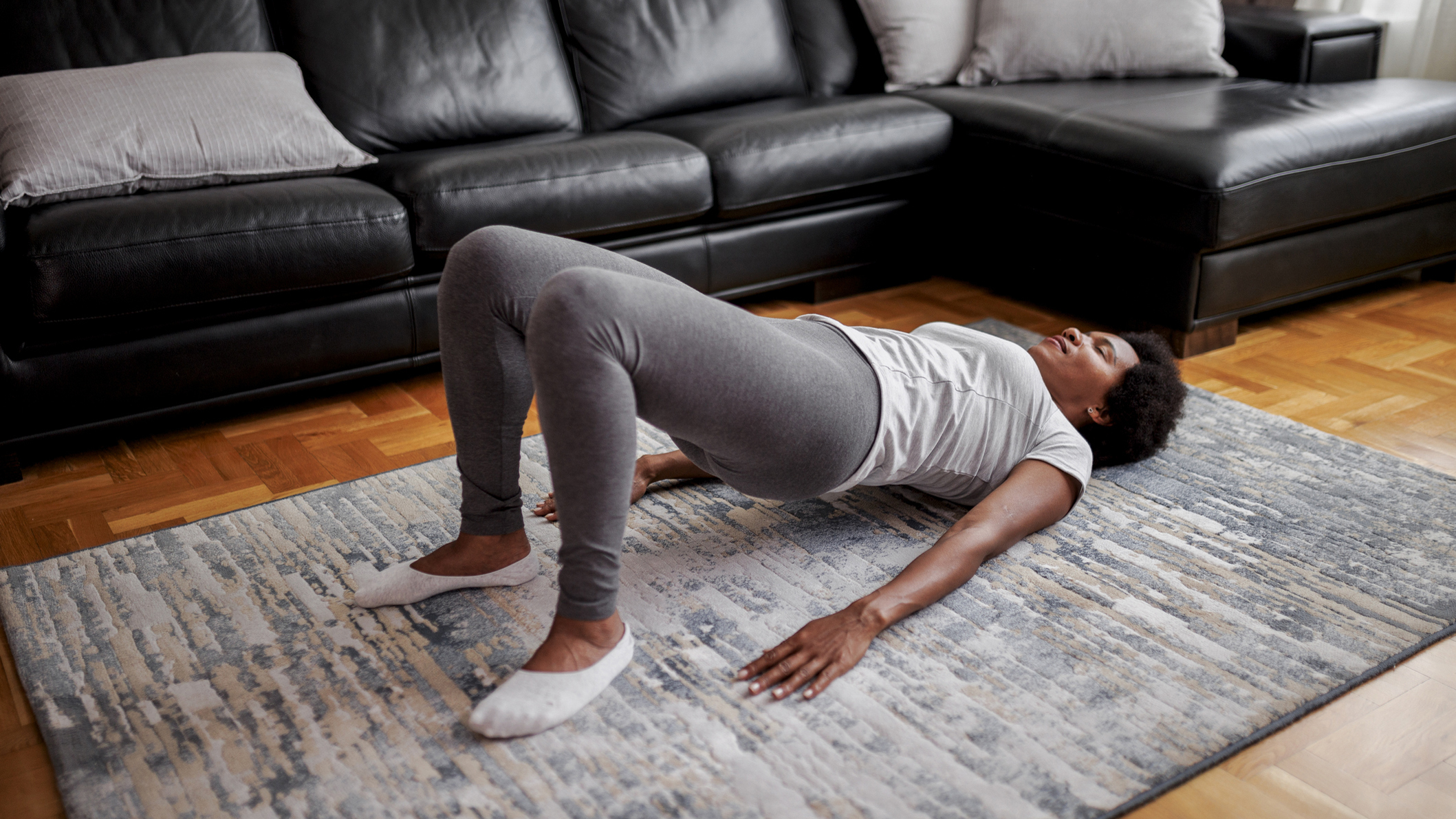
Pilates is a fantastic way to get fit, but it may seem daunting if you’ve never done it before. Thankfully, there are lots of Pilates exercises that are accessible to novices, and Pilates for beginners can introduce you to the practice gently.
You won’t need much kit to get started with Pilates, but one of the best yoga mats can provide you with a grippy, slip-free surface on which to complete your workout.
We’ve interviewed Matt Kendrick, a Pilates specialist and a qualified personal trainer, to get his recommendations on some of the best exercises for beginners.

Matt Kendrick is the owner and founder of MK Healthhub, which was launched in 2001. He's a Pilates specialist and qualified personal trainer, who has worked with Olympic gold medalists.
Pilates for beginners: key moves to master
1. Bridge
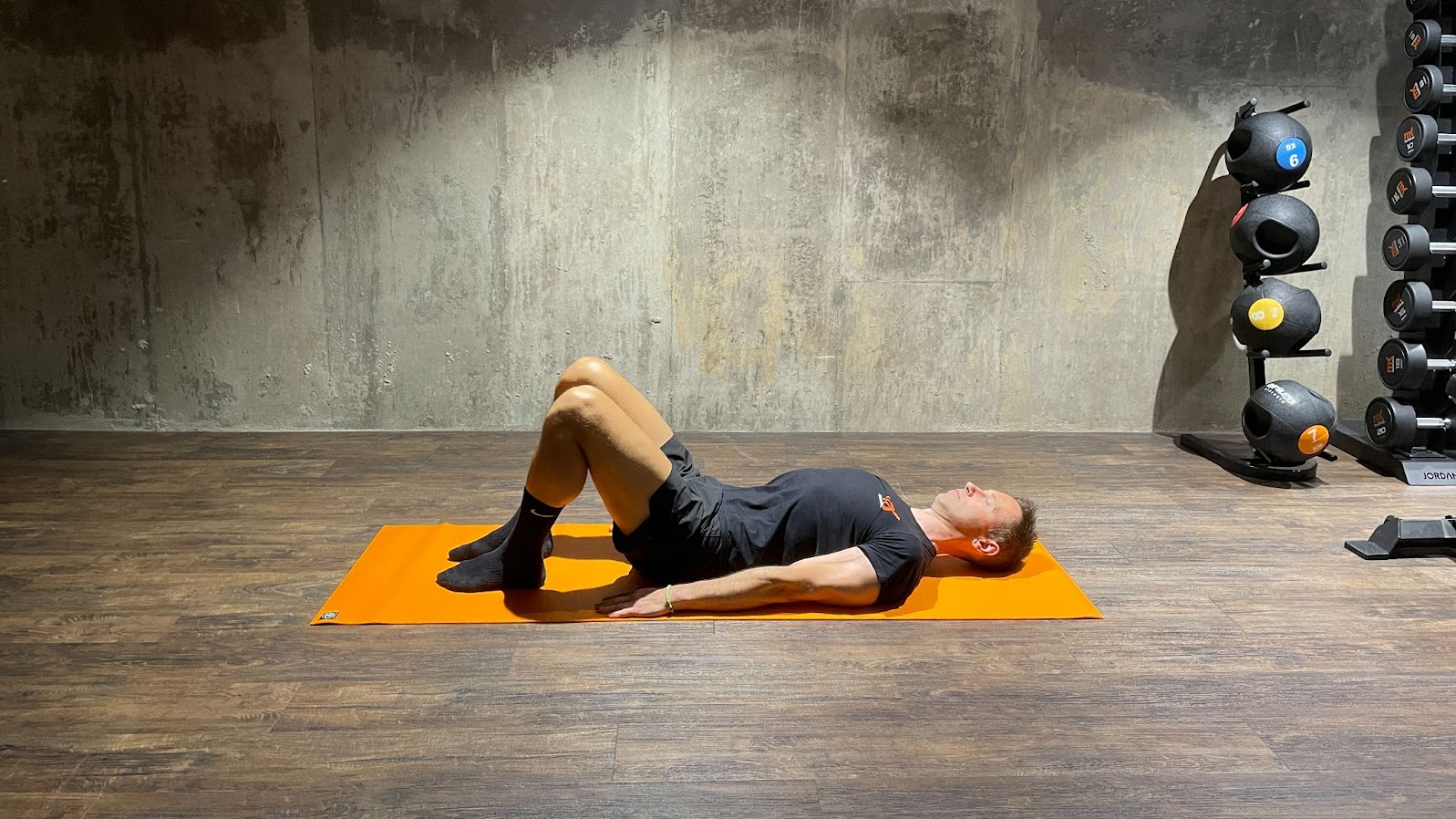
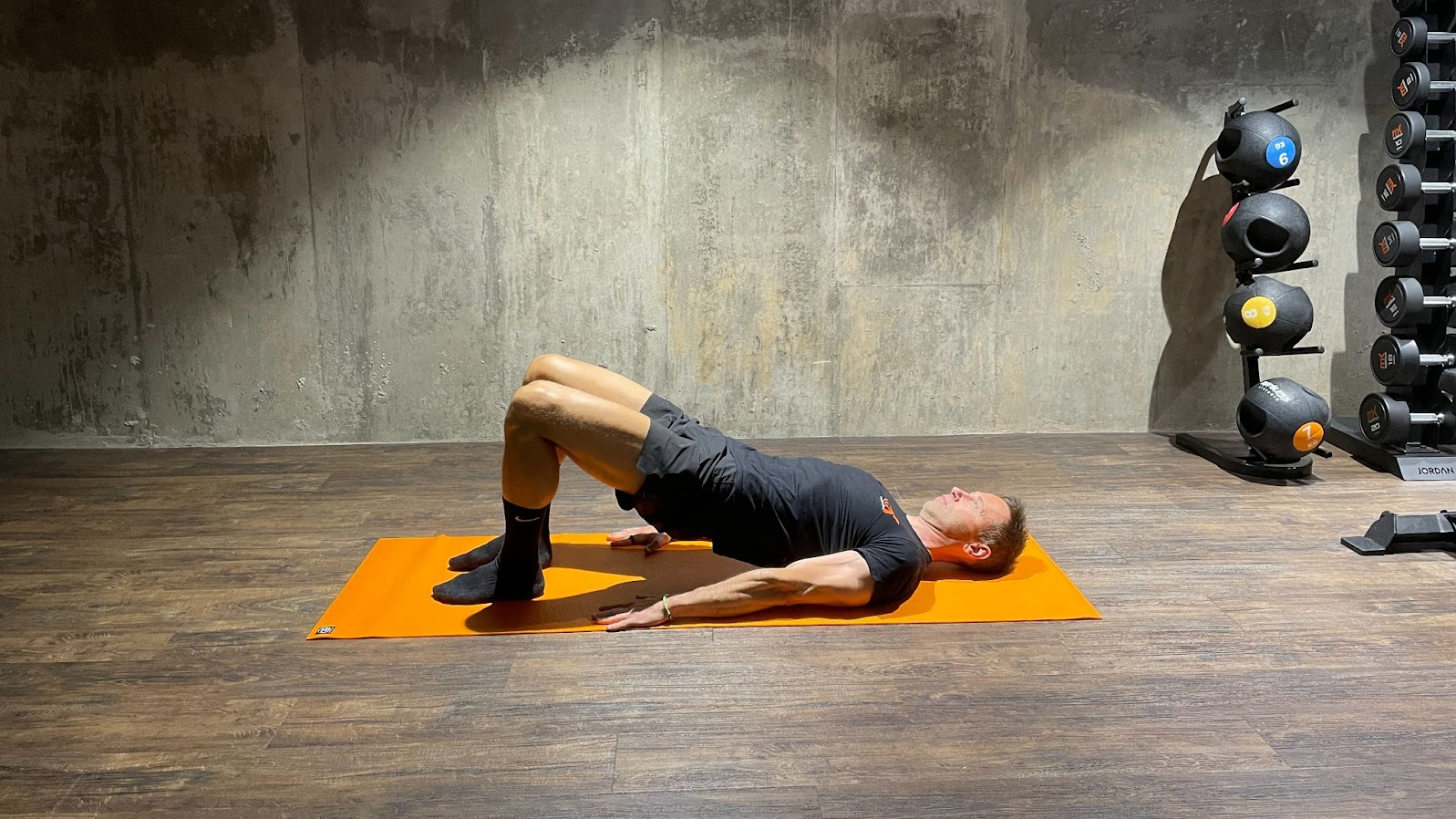
Reps: 6-8
- Start by lying on your back, knees bent, feet hip width apart, arms long and pressed down into the mat.
- Inhale, pause, then exhale. Engage the lower abdominals by bringing the belly button to spine, tuck the pelvis under, activate the glutes and move the hips upward until your body is in a straight line between knees, hips and shoulders.
- Inhale, pause, then exhale, slowly lowering back down, one vertebrae at a time, releasing the glutes as you touch the mat.
2. The hundred
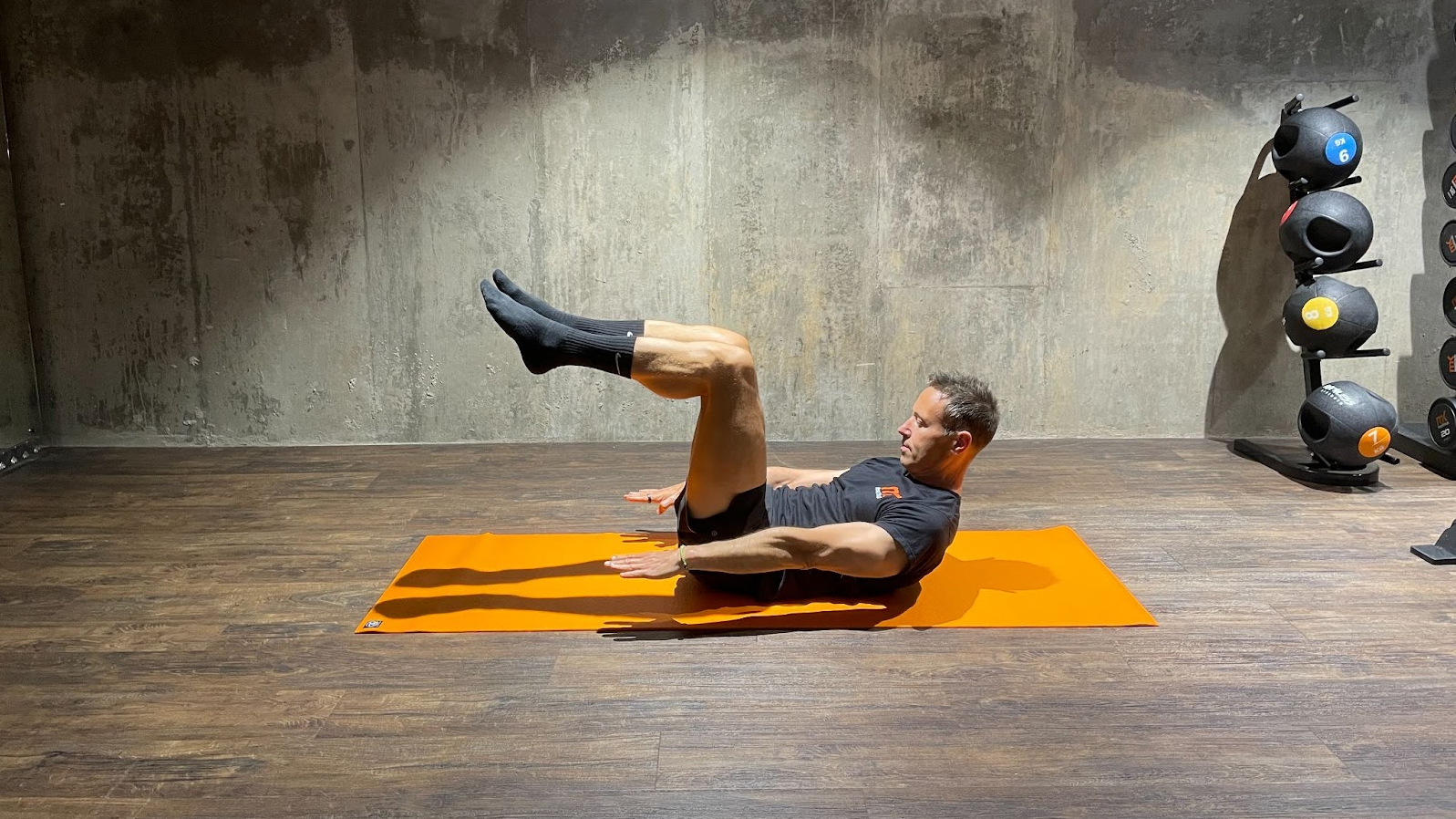
Reps: 100
- Lie on your back, knees bent, feet flat on the floor. Engage the lower abdominals and keep your arms by your side. Lift legs up into tabletop position (knees bent at 90 degrees to the floor, shins parallel).
- Inhale, tuck chin to chest. Exhale, lifting head and shoulders off the mat, while lifting arms to shoulder height. Take 5 short breaths in through the nose for 5 counts, pumping your arms up and down slightly. Continuing the pumping motion of the arms, exhale through the mouth for 5 counts.
3. Single leg circle
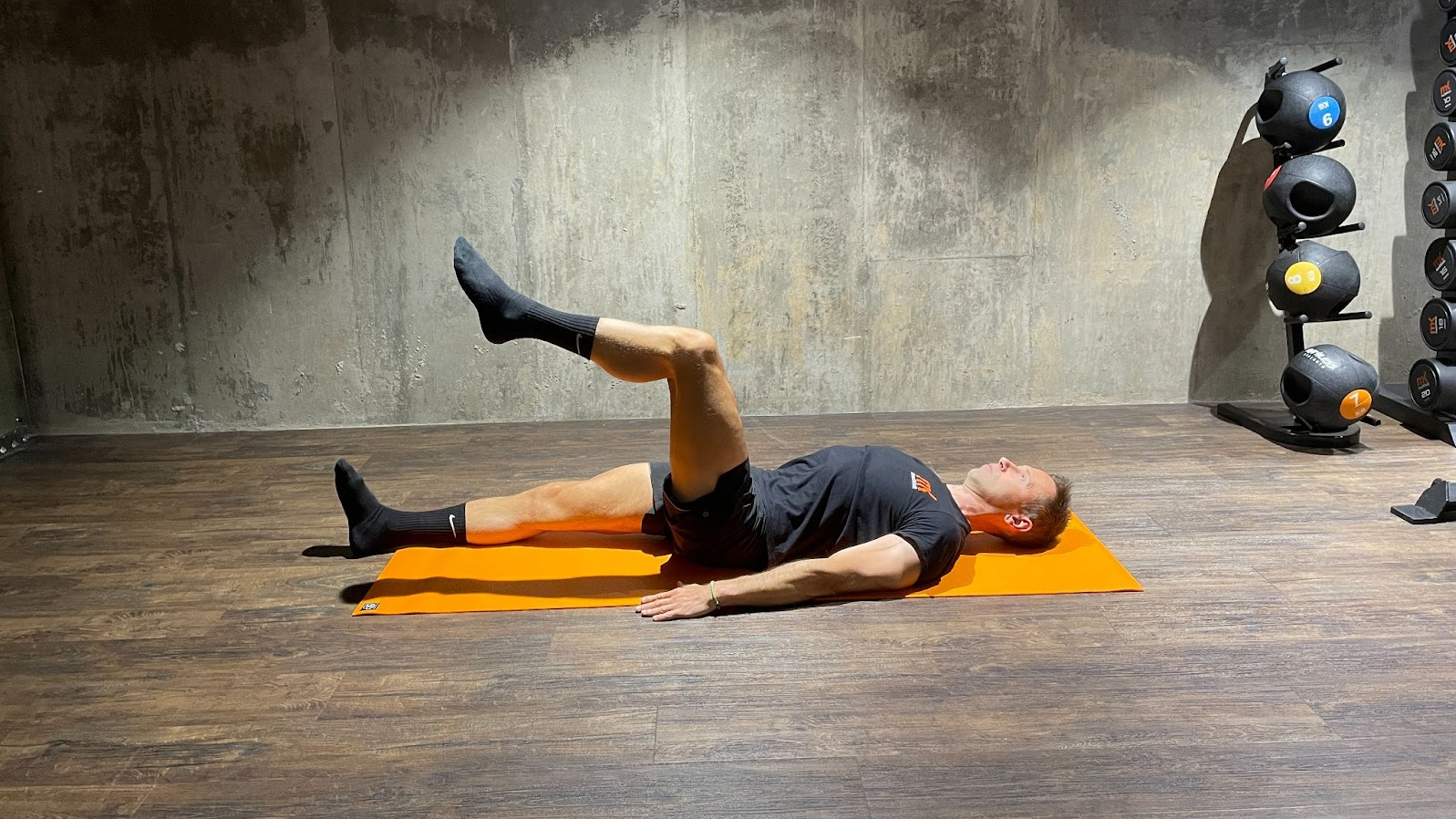
Reps: 4-6, then circle in reverse direction for another 4-6 reps. Repeat on other leg.
- Lie on your back on the mat, feet flat on the floor, arms by your sides. Engage the abdominals.
- Exhale and lift your right leg in the air, knee bent. Inhale, bringing the right knee towards your body across the midline of your body as if drawing a semicircle on the ceiling.
- Exhale, complete the other half of the circle moving the knee away and back to the top. Continue this direction, inhale for first half of circle and exhale for the second half. Repeat on the other leg.
4. Criss cross
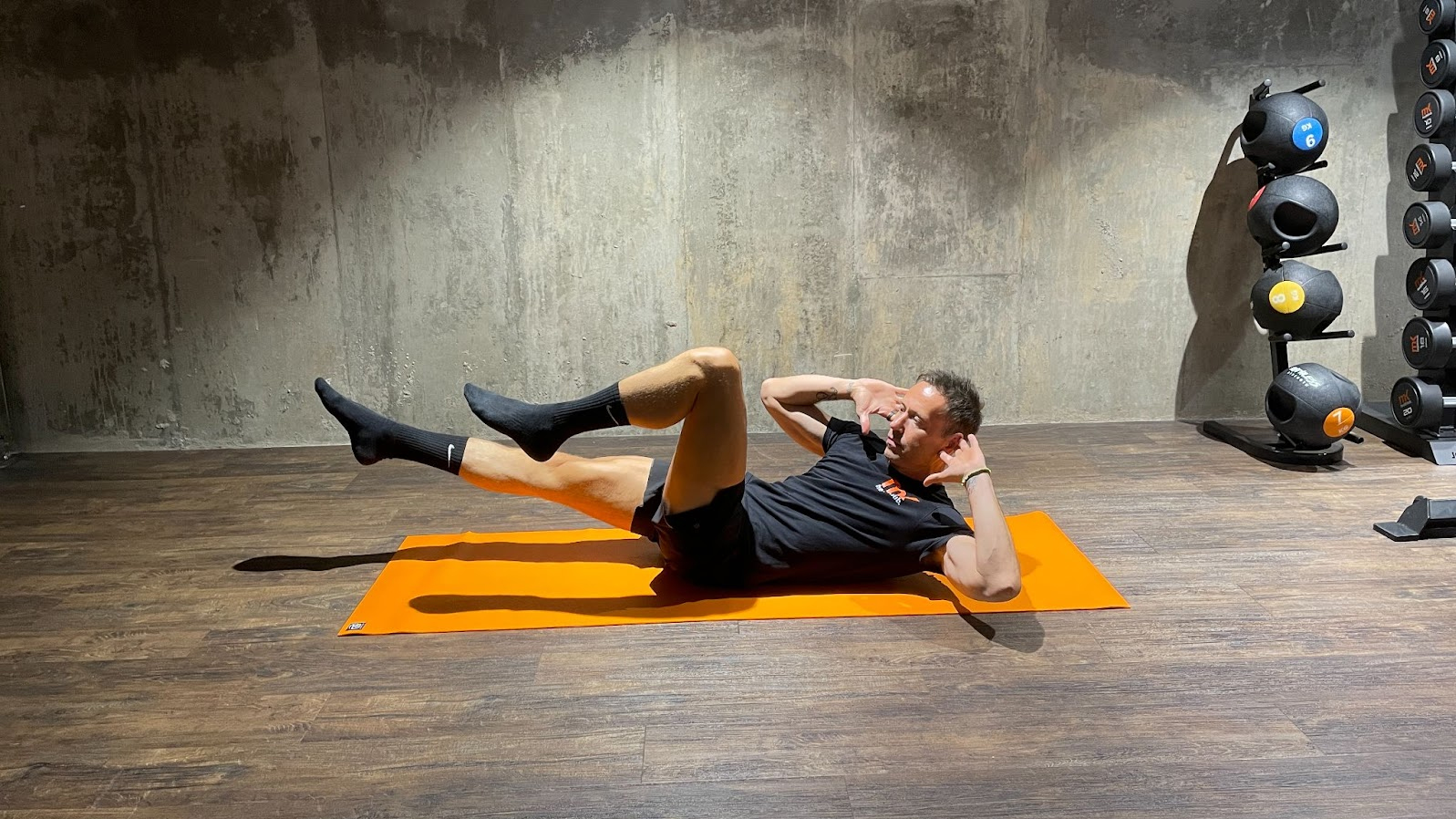
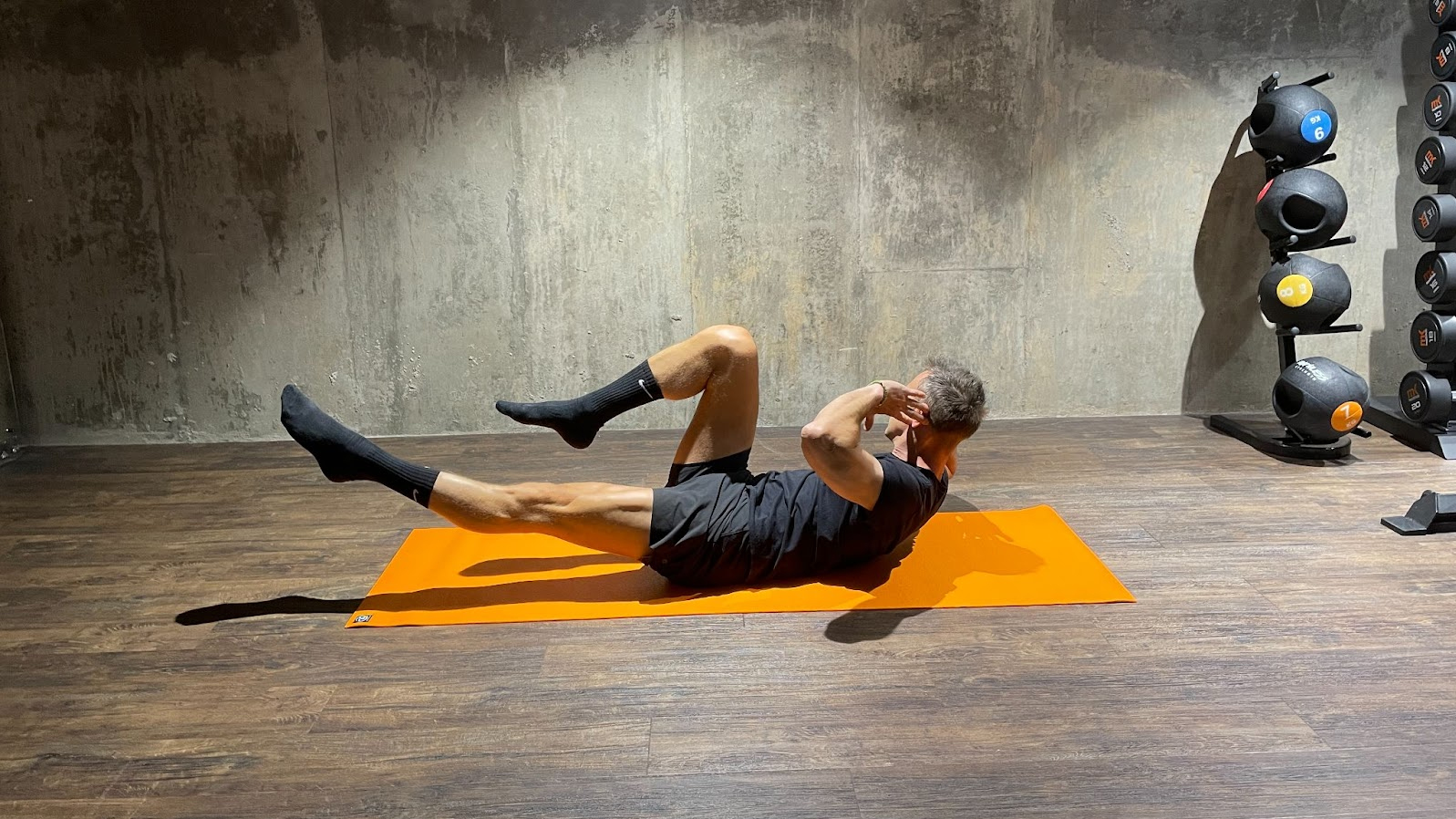
Reps: 6-8 on either side
Start your week with achievable workout ideas, health tips and wellbeing advice in your inbox.
- Lying on your back on the mat, knees bent, feet flat, arms by your side. Engage the abdominals, inhale lifting one leg up into tabletop, exhale, lift the other leg. Place both hands behind your head, elbows wide. Lift head and shoulders off the mat.
- Exhale, extend the right leg out straight and draw the left knee closer to your chest, twisting shoulder and ribcage toward the left knee.
- Inhale, return to the start position, then exhale and extend the left leg straight out and bring your right knee closer as you twist, aiming the left shoulder to the right knee.
5. Single leg stretch
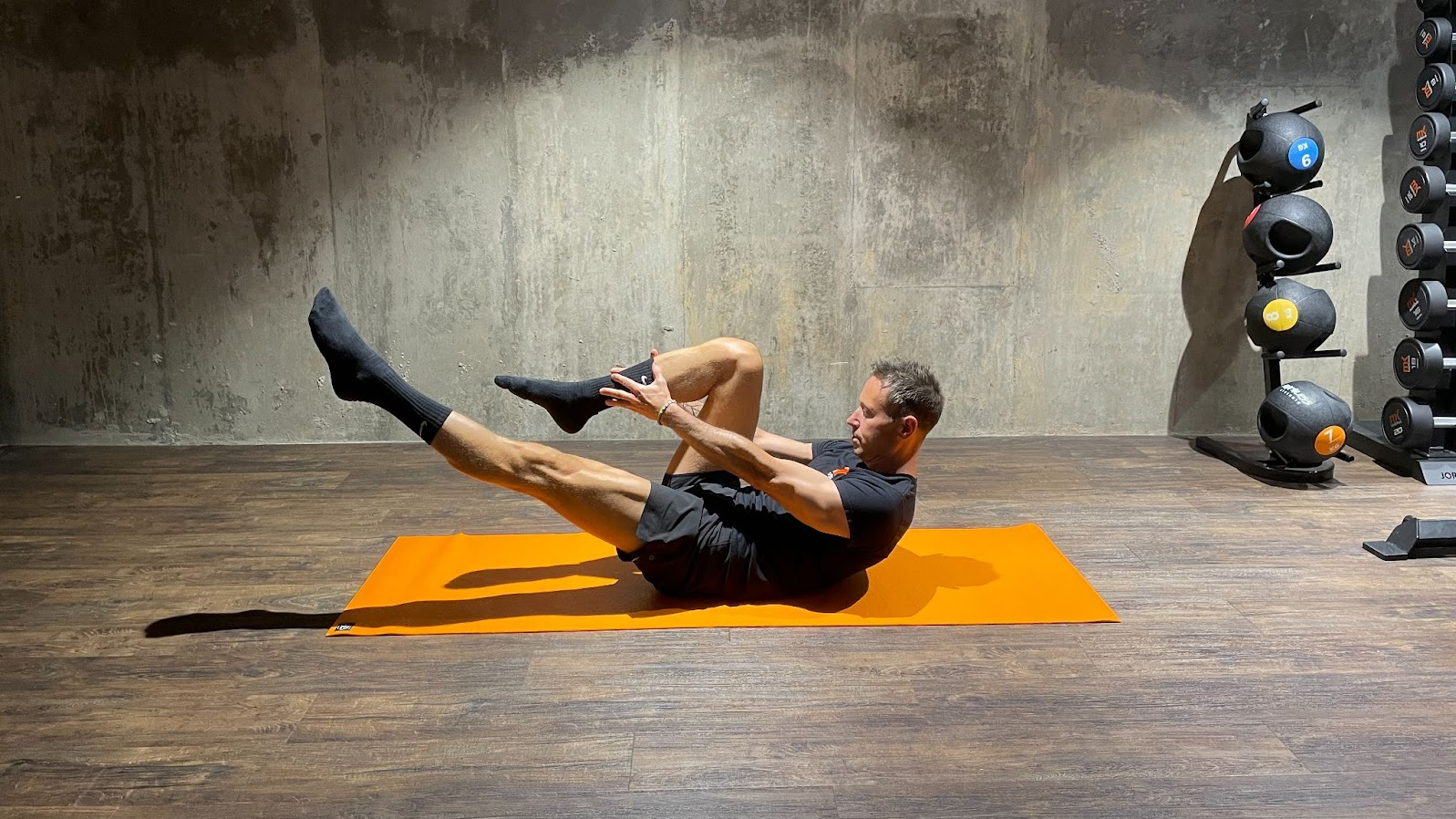
Reps: 8-10 on each leg
- Lie on your back with both knees bent, feet flat, arms by your side. Inhale, engaging abdominals, bring legs one at a time into the tabletop position. Reach your arms toward your ankles with both hands against the outside of your calves, lifting head and shoulders off the mat.
- While inhaling, extend the right leg into a low diagonal position, reaching your arms toward feet, curling up higher off the mat. Keeping the inhale, switch and extend the left leg, reaching toward feet while curling up higher.
- Exhale, repeat the movement, drawing the left knee to chest while reaching the right leg as low as you can, keeping the exhale, pull on the right knee and reach out the left leg.
6. Side kicks
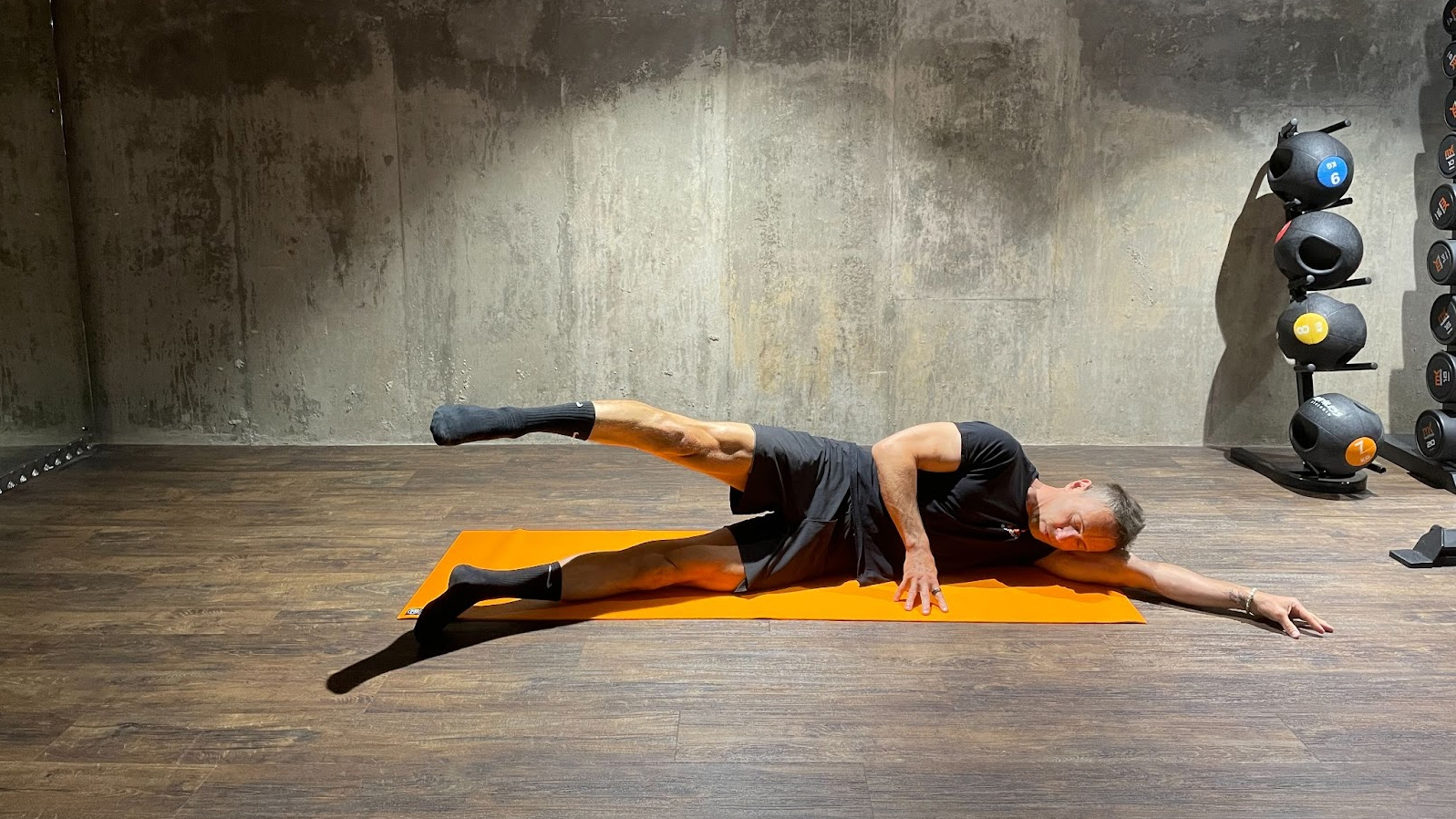
Reps: 6-8 on each leg
- Lie on your side with your hips stacked and legs straight at a 30-degree angle in front of you. Place your head on your bottom hand, elbow bent. Keep your pelvis and spine in neutral, abdominals engaged as you inhale.
- Exhale, lift the top leg up to hip height. Inhale for 2 breaths kicking the top leg forward towards your chest and pulsing twice.
- Slowly exhale, pressing the same leg back as far as you can while maintaining a neutral spine.
7. Opposite arm/leg raise (alt Superman)
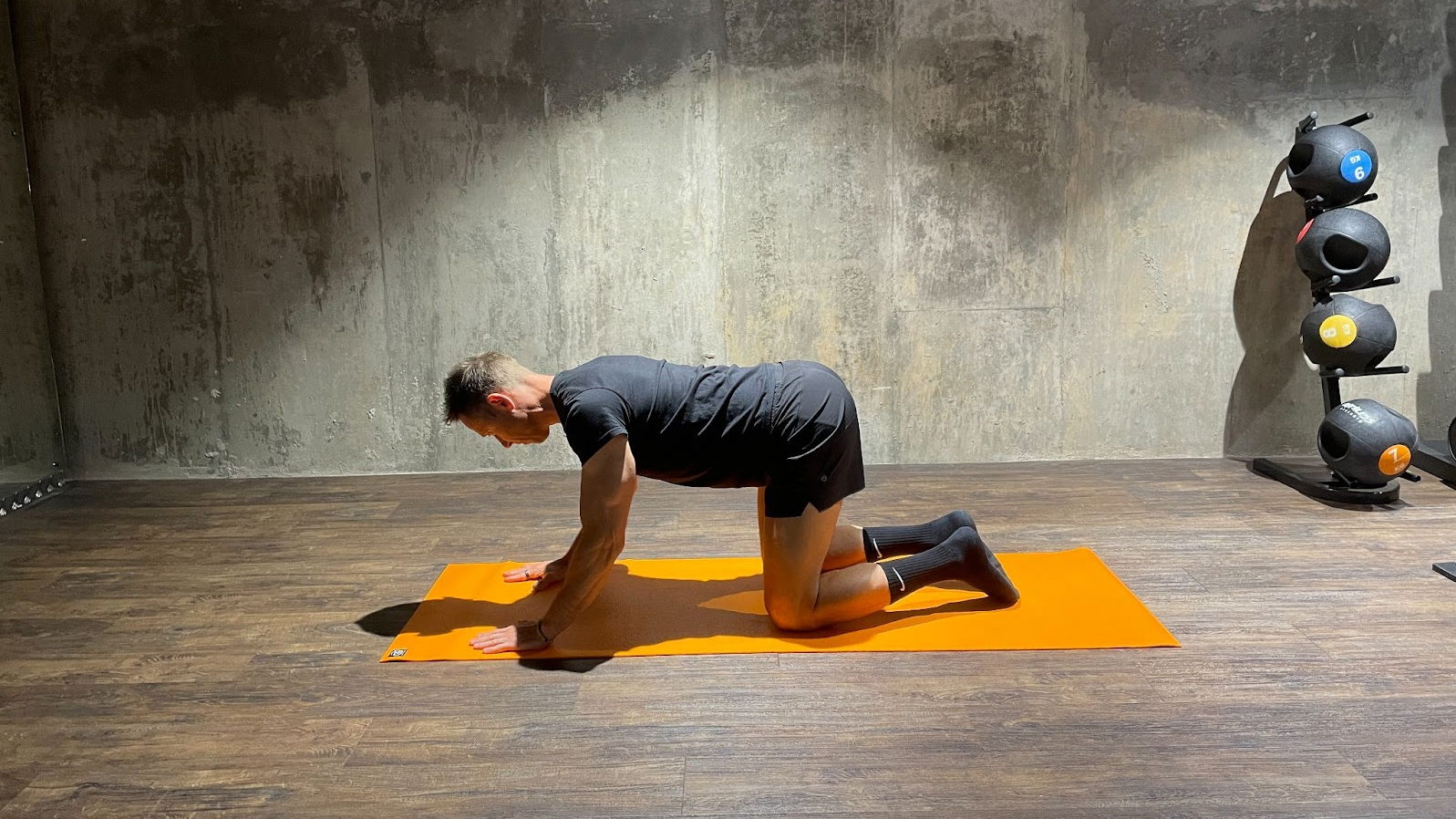
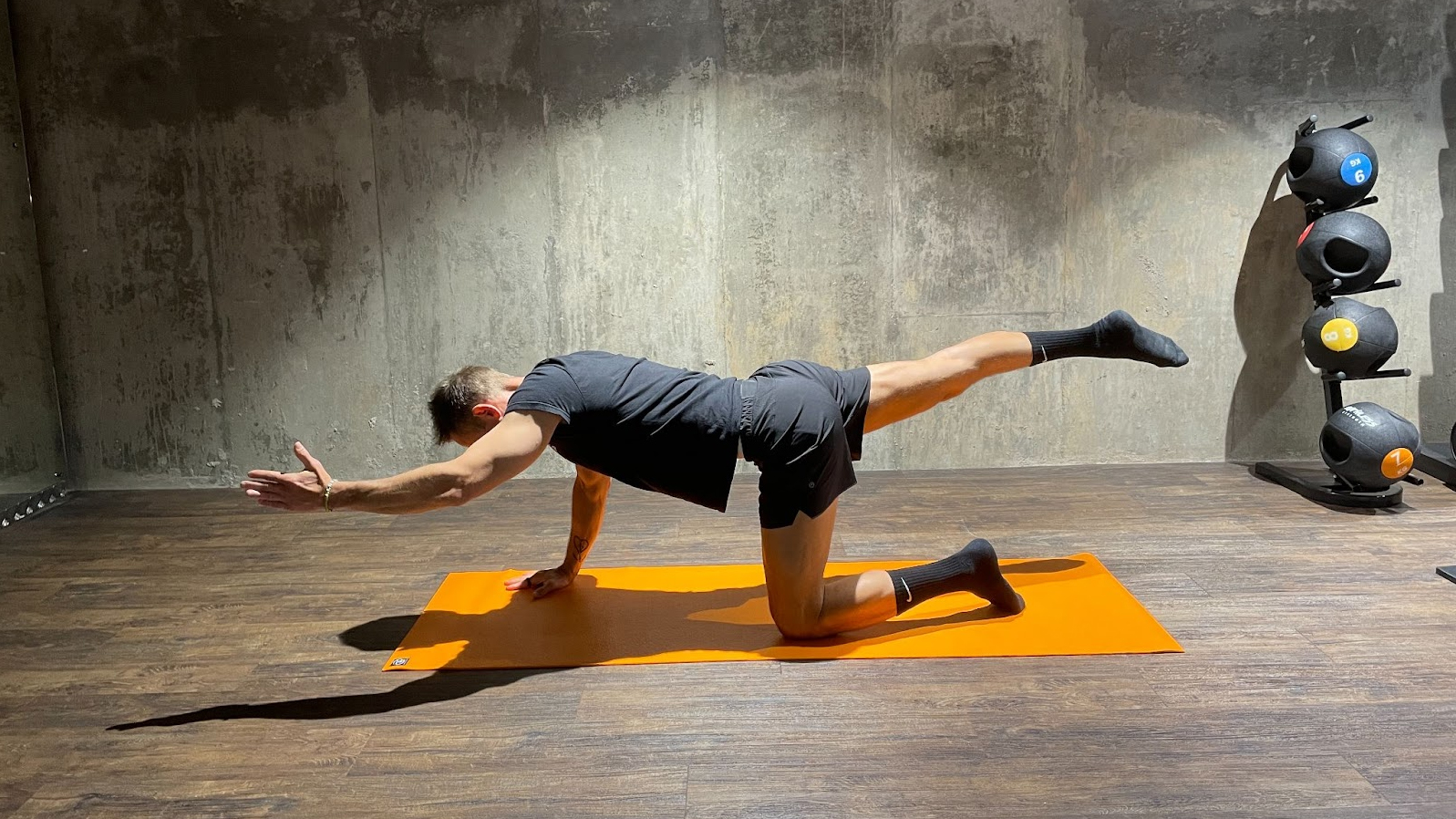
Reps: 6-8
- Starting on all fours, your knees directly under your hips and hands under your shoulders. Elbows soft and the insides facing each other. Lengthen through the head and neck, engaging abdominals with the pelvis and spine in neutral.
- Inhale, then exhale, reaching right arm up and forwards at the same time lengthening the opposite leg away behind you. Pause 2 seconds. Inhale and bring the leg and arm slowly back to the start.
8. Breaststroke
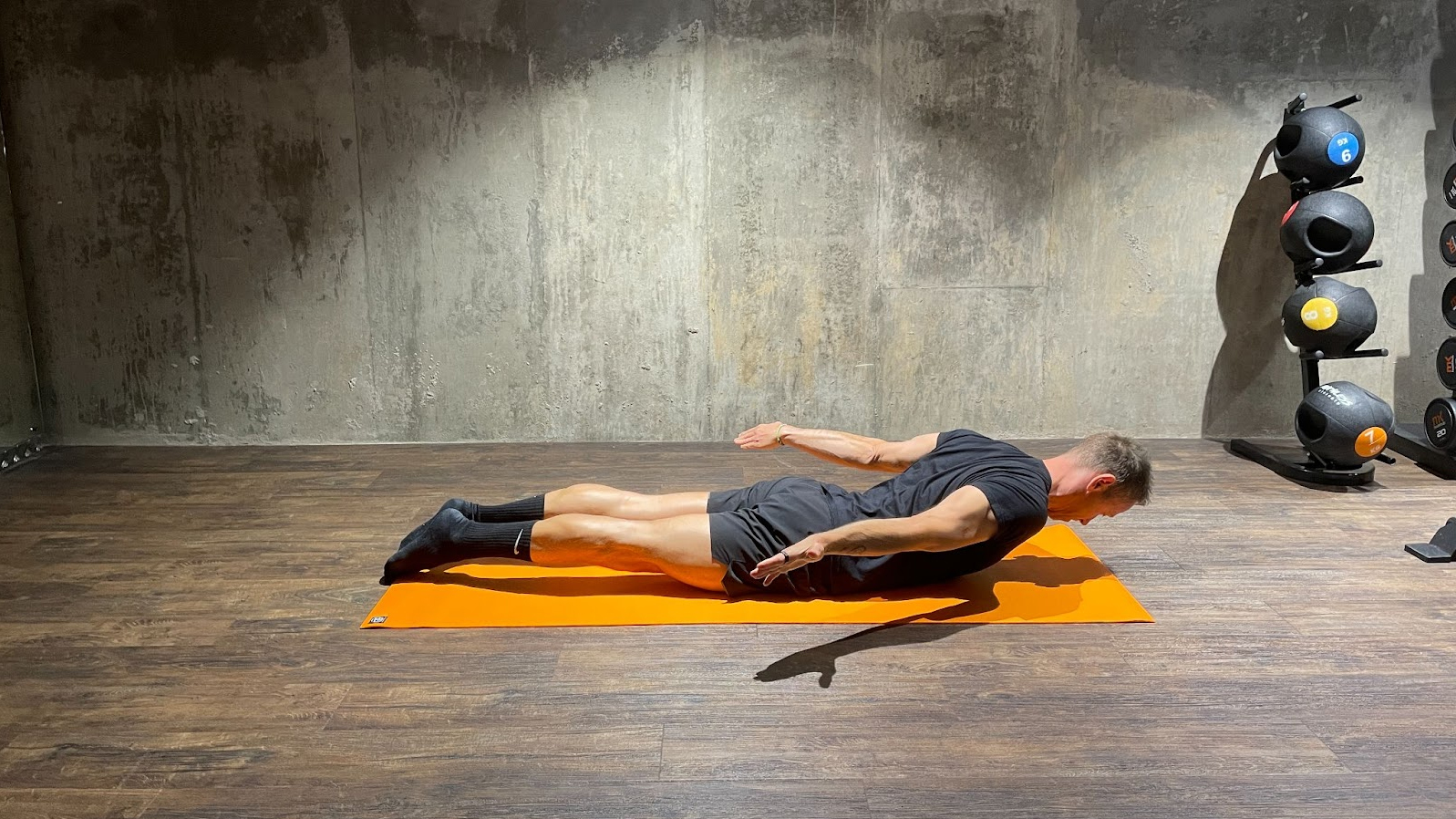
Reps: 6-8
- Lie on your stomach with legs straight, shoulder width apart. Inhale, engage the abdominals, ensuring neutral spine.
- Exhale, reach your arms straight overhead and lift your torso slightly above the mat. Inhale, sweep your arms around wide to the sides of your body, extending your spine, head and shoulders off the mat.
Which type of Pilates is best for beginners?
According to Kendrick: “Matwork Pilates is the best way for those new to the system to learn the key guiding principles.” These are:
- Control – teaching mind and body total muscle control
- Precision – every movement has purpose
- Breath – exercises are coordinated with the breaths
- Flow – movements are smooth and graceful
- Concentration – total awareness of the body during exercise
- Centering – strengthening the core
Is 20 minutes of Pilates a day enough?
It can be difficult to find the time for exercise, but grabbing 20 minutes a day for Pilates may be feasible, and you might not need to do it every single day.
“Twenty minutes, three times week is a great schedule to begin with,” says Kendrick. “This is a great start to your Pilates regime, building regular practice habits alongside all the benefits of increased core strength, flexibility and improvements in posture and alignment.”

Lou Mudge is a Health Writer at Future Plc, working across Fit&Well and Coach. She previously worked for Live Science, and regularly writes for Space.com and Pet's Radar. Based in Bath, UK, she has a passion for food, nutrition and health and is eager to demystify diet culture in order to make health and fitness accessible to everybody.
Multiple diagnoses in her early twenties sparked an interest in the gut-brain axis and the impact that diet and exercise can have on both physical and mental health. She was put on the FODMAP elimination diet during this time and learned to adapt recipes to fit these parameters, while retaining core flavors and textures, and now enjoys cooking for gut health.
